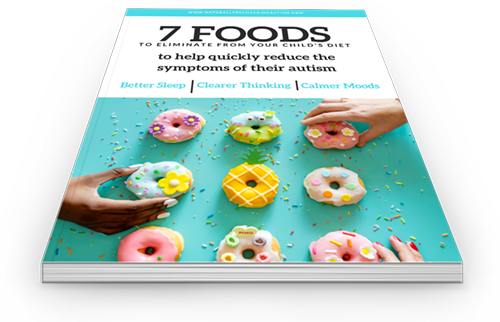Blood Sugar and the Brain
Specific foods can either keep your brain healthy or destroy it, literally. The hormone insulin is the gatekeeper of glucose (blood sugar) entering the cells. Constant exposure to high levels of insulin due to a poor diet (one high in processed carbohydrates and sugar) causes the cells to become desensitized to insulin or insulin resistant. This causes the pancreas to think more is needed so it continues releasing it. High levels of sugar are now in the bloodstream which create diseases such as type 2 diabetes, nerve damage, heart disease, random infections, and Alzheimer’s. Insulin resistance triggers the plaques to form in the brain that lead to Alzheimer’s.
 In 2005, studies were first released proposing Alzheimer’s as a third type of diabetes. Recently, the Australian National University in Canberra has released data from their study in the American journal Neurology telling us that those with higher blood sugar levels had a higher risk for brain shrinkage.
In 2005, studies were first released proposing Alzheimer’s as a third type of diabetes. Recently, the Australian National University in Canberra has released data from their study in the American journal Neurology telling us that those with higher blood sugar levels had a higher risk for brain shrinkage.
In studies of a science called epigenetics, it has been shown that your diet can change your DNA. We have been taught by inaccurate sources to eat a diet high in carbohydrates and low in fat. We know that the brain is made of 60 percent fat, and it must have fat (healthy fat) to keep it functioning at optimum and to stay healthy.
It is important to recognize which fats are healthy and which are not. To have a healthy brain and keep it that way it is crucial to eat a diet of moderate protein, and high in good, healthy fats such as olive oil, coconut oil, avocado, and nuts (not peanuts).
Healthy Fats vs. Unhealthy Fats
It is important to lower your intake of polyunsaturated omega-6 fats. We get more than we need in our daily diets, and they battle against the god omega-3 fatty acids, often winning. When too many omega-6 fats are in the system, they will deplete the omega 3’s from the body. We need omega 3’s for brain health among many other necessary body functions.
The bad, unhealthy fats include corn oil, safflower oil, sunflower oil, peanut oil, soybean oil, and canola oil. These oils promote inflammation and suppress the immune system. Most restaurants, especially fast food restaurants, use the bad fats for cooking and frying.
When you something labeled “low fat” it almost always has a very high sugar content. This is very common with processed carbohydrate food such as cakes, cookies, muffins, etc. Food corporations like to try to fool us. If it says it is low fat people think it is a healthier food.
Cook only with animal fats, including butter, or non-hydrogenated coconut oil. These fats do not alter their chemical form under heat as other oils will. When the beneficial cold-pressed oils such as olive, flaxseed, or avocado are heated to high temperatures they change from healthy unsaturated fatty acids to unhealthy trans fats.
Testing Blood Sugar Levels
The traditional blood sugar tests will often offer a “normal” result when there is still a weakening of an overworking pancreas. This could easily lead to future problems. A fasting insulin test which is done first thing in the morning before any food intake, is essential. If the markers from this test come up elevated it is a sign of danger.
Eating a diet of moderate protein, high in good fats and low in carbohydrates is vital to your brain health. See my post, “Hypoglycemia or Low Blood Sugar” for more information on how to regulate your blood sugar levels naturally.
Please also listen to my other podcasts regarding diet, blood sugar and healthier eating strategies including:
Diabetes Triggers and Prevention
Healthier Holiday Eating Strategies
Good Fats vs. Bad Fats For Brain Health in Autism
Learn about Keto-licious cookies here.
Learn more about food dyes here.
Here’s to helping your holidays be happier and healthier!
And follow me on Facebook!
Diet makes a HUGE difference!
Get your FREE foods guide to the top 7 foods to avoid for calmer behaviors,
clearer thinking, improved sleep, and more peace in your life!












